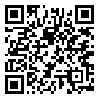Volume 28, Issue 7 (10-2021)
RJMS 2021, 28(7): 71-74 |
Back to browse issues page
Research code: 1
Ethics code: 1
Clinical trials code: 1
Download citation:
BibTeX | RIS | EndNote | Medlars | ProCite | Reference Manager | RefWorks
Send citation to:



BibTeX | RIS | EndNote | Medlars | ProCite | Reference Manager | RefWorks
Send citation to:
Khashei Varnamkhasti K. Physiological impacts of face mask during the COVID-19 epidemic on vulnerable populations; children, pregnant women, and people with chronic diseases. RJMS 2021; 28 (7) :71-74
URL: http://rjms.iums.ac.ir/article-1-6691-en.html
URL: http://rjms.iums.ac.ir/article-1-6691-en.html
Islamic Azad UniversityUniversity of Islamic Azad, Kazerun, Iran, Department of Genetics, School of Medicine, University of Islamic Azad, Kazerun, Iran , khalil.khashei2016@gmail.com
Abstract: (2749 Views)
Background & Aims: Since the outbreak of acute respiratory syndrome of Coronavirus-2 (SARS-CoV-2), the use of masks has become widespread in countries. Vulnerable populations such as; children, pregnant women and those with chronic conditions, should be considered when using face mask recommend. To date, the physiological effects of masks in children not examined. However, Smart and colleagues reported that the most discomfort for children as a result of using the mask was related to the increased facial temperature, especially when performing activities such as running. In pregnant women, short-term use of the mask do not affect maternal heart rate, fetal heart rate, respiration rate, or blood oxygen concentration. Thus do not cause physiological aberrations. On the other hand, no specific groups of chronically ill people have been exempted from wearing a mask during an epidemic crisis. Numerous studies have evaluated the effects of face mask in patients with chronic diseases. For example, one study examined the physiological effects of mask use in patients with kidney disease during an outbreak of SARS (Acute Respiratory Syndrome) in 2003. In this study, in addition to chest discomfort and respiratory distress, seventy percent of patients that used mask showed a reduction in partial pressure in oxygen and about nineteen percent developed hypoxia. Therefore, the use of mask in patients with kidney disease is associated with adverse consequences .In another study, evaluating the effect of wearing mask in pulmonary disease showed that these patients do not easily adapt to mask. The American Asthma and Allergy Foundation recently published an article, which shows; using a mask can be dangerous for people with severe asthma. Therefore, the decision to use the mask should probably be made separately and in consultation with the physician, given the individual’s particular circumstances. In situations where people with chronic illnesses, children, or pregnant women may not be able to use the mask safely, it is recommended that healthy people use masks to help protect these vulnerable populations.
Type of Study: Letter to the editor |
Subject:
Epidemiology
Send email to the article author






